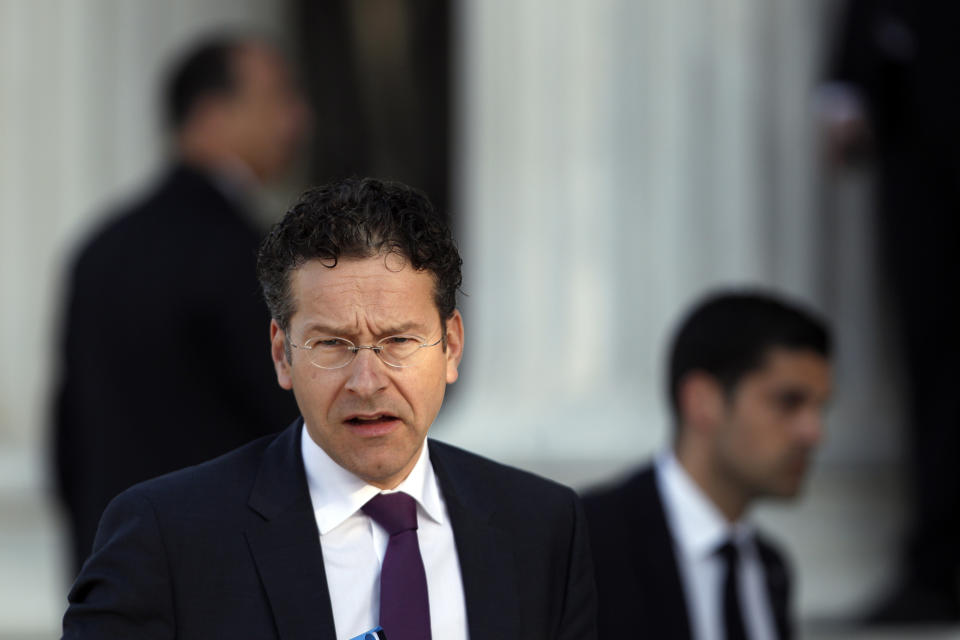Greece to get next bailout loan in 3 parts
ATHENS, Greece (AP) — Jeroen Dijsselbloem, who chairs the meetings of the eurozone's finance ministers, says Greece will receive its next 8.3 billion-euro ($11.4 billion) bailout installment in three parts.
The decision comes after the completion of a review by Greece's international debt inspectors of the country's reforms. Continued funding from the bailout by other European countries and the International Monetary Fund depends on these reviews.
Speaking after a finance ministers' meeting in Athens, Dijsselbloem said the first part of the current installment of rescue loans would be disbursed at the end of April, in time for Greece to meet a bond redemption in May. The rest of the rescue loans will be paid in June and July.
The amount does not include the IMF portion of the installment, which is paid separately.
THIS IS A BREAKING NEWS UPDATE. Check back soon for further information. AP's earlier story is below.
Finance ministers from the European countries that use the euro currency were meeting in Athens Tuesday, with discussions to include how to pay out delayed bailout installments to Greece and how to ease Portugal out of its rescue program.
Both financially stricken countries have received multi-billion-euro bailouts from other European countries and the International Monetary Fund and have implemented a series of fiscal reforms in return, with their economies under strict supervision by international debt inspectors.
Security for the meeting was tight, with protests banned in much of central Athens. Unions and political youth groups plan demonstrations just outside the exclusion zone Tuesday evening.
The eurogroup meeting is to be followed by a broader gathering of all European Union finance ministers later in the day and on Wednesday, with talks to center on the social impact of the crisis, the EU's growth and financial stability, and banking union among other topics.
Greece, which has suffered the deepest and most prolonged financial crisis of the 18-member eurozone, hopes for a positive assessment from the eurogroup on progress made in reforms. A review by the debt inspectors from the International Monetary Fund, European Central Bank and European Commission, collectively known as the troika, ended last month and the country hopes for the disbursement of a long-delayed bailout installment.
Portugal's rescue loan program, which began in 2011, is due to end in mid-May, and ministers are to discuss the details of its bailout exit. The country's economy has improved significantly recently, with Portugal posting an improved budget deficit and lower unemployment.
"I think it's important to take note of the reduction in unemployment in Portugal," EU Economic and Monetary Affairs Commissioner Olli Rehn said as he arrived. "It's not enough but it shows things are going in the right direction."
However, no concrete decision is expected to be taken during the Athens meeting, with Rehn saying that discussions will be conducted "in coming weeks."
Greece was the first eurozone country to receive a bailout, and has depended on those rescue loans since May 2010. It hopes for a statement of support from other eurozone countries.
Jeroen Dijsselbloem, the Dutch finance minister who chairs the eurogroup meetings, said Tuesday's talks on Greece would focus on "the future, on the finalization of the Greek program on the basis of the troika reports."
"So we'll hear from the troika first, then we'll decide on the further disbursements — what the size is, what the timing is, if further steps have to be taken, etc."
"There is urgency and there will be a decision today," he told reporters before entering the meeting room. "But you asked me what the decision is and I will tell you afterwards."





